Born Margaret Hilda Roberts (1925 – 2013), Thatcher was a British stateswoman who is often called “Iron Lady” due to her uncompromising politics and leadership style. In 1975, she became the first woman to lead a major political party in the U.K. when she was elected as head of the Conservative Party. In 1979, she led her party to victory to become the first female to be elected head of government in not only U.K. but entire Europe. Margaret Thatcher served as Prime Minister of the United Kingdom from 1979 to 1990. She was the longest-serving British prime minister of the 20th century. On the domestic front, Thatcher brought about several influential changes including privatisation and deregulation to move her nation towards a free market economy. In foreign affairs, she successfully led Britain through the Falklands War and played a significant role in ending the Cold War. Know about the contribution of one of the most influential leaders of the 20th century though her 10 major achievements.
#1 SHE WAS THE FIRST WOMAN TO LEAD A MAJOR POLITICAL PARTY IN U.K.
Margaret Thatcher graduated from the University of Oxford in 1947 with Second-Class Honours in the four-year Bachelor of Science degree in Chemistry. She specialized in X-ray crystallography. After graduation she worked as a research chemist for BX Plastics and then J. Lyons and Co. Thatcher first ran for Parliament as a candidate of the Conservative Party in 1950 but was unsuccessful. In 1953, she qualified as a barrister with specialization in taxation. She became a Member of Parliament in 1959 after winning from the constituency of Finchley in northern London. The Conservative Party won the 1970 general election, and Thatcher was appointed as Education Secretary. She served in this position till 1974. The Conservative Party lost the 1974 election. However, Thatcher was chosen as leader of her party and she thus became the Leader of the Opposition on 11th February 1975. She served as Leader of the Conservative Party from 1975 to 1990. Thatcher was the first woman to lead a major political party in the United Kingdom.
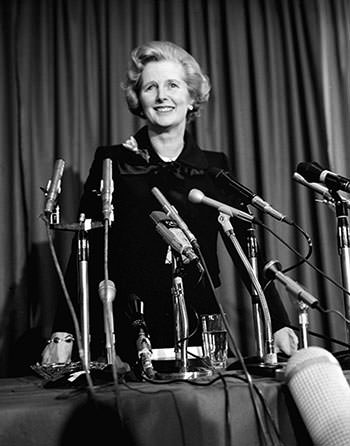
#2 She WAS THE FIRST FEMALE TO BE ELECTED HEAD OF GOVERNMENT IN EUROPE
In the 1979 United Kingdom general election, Margaret Thatcher led the Conservative Party to victory with a parliamentary majority of 43 seats. Her party won 339 seats while the Labour Party won 269. Margaret Thatcher was United Kingdom’s and Europe’s first elected female head of government. She was also the first British Prime Minister with a science degree. The 1979 election was the first of four consecutive election victories for the Conservative Party. Thatcher served as Prime Minister of the United Kingdom from 4th May 1979 to 28 November 1990. She was the longest-serving British prime minister of the 20th century. For most of her premiership, she was described as the most powerful woman in the world. Thatcher ranks as the most popular party leader in British history in terms of votes cast for the winning party, with over 40 million ballots casted for her party between 1979 and 1987.
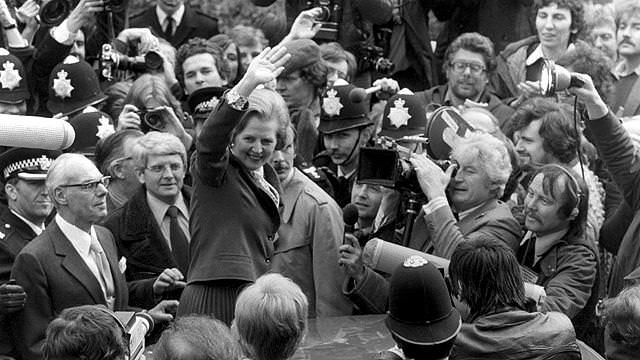
#3 SHE SUCCESSFULLY HANDLED THE IRANIAN EMBASSY CRISIS
On 30th April 1980, a group of six armed men stormed the Iranian embassy in South Kensington, London, and took 26 people hostage. The perpetrators demanded independence for the Khuzestan Province in Iran; the release of around 90 of their provincial countrymen from jail; and their own safe passage out of England. Prime Minister Thatcher rejected the possibility of negotiating with the terrorists and made it clear that safe passage would not be granted. The situation resulted in a siege during which five hostages were released by the terrorists in return for minor concessions. Frustrated with the lack of progress, the terrorists killed one of the hostages and threatened to kill one every half an hour. In response, Thatcher gave the go ahead to the Special Air Service (SAS) to conduct an assault. Within 17 minutes, the SAS rescued all but one of the remaining hostages; and killed five of the six terrorists capturing the remaining one. The Iranian Embassy crisis established the reputation of Margaret Thatcher as a strong leader.
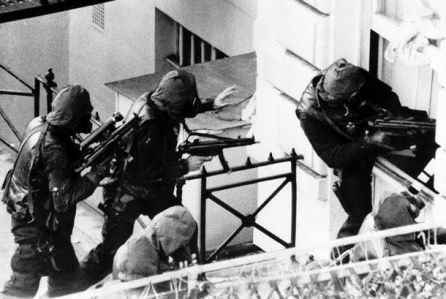
#4 SHE IMPLEMENTED A FREE MARKET ECONOMY IN BRITAIN
Among the key features of Thatcher’s domestic policy was reduced government intervention and reliance on market forces to ensure efficiency. This was achieved through privatisation and deregulation. Thatcher aggressively sold off key industries owned by the British government. State owned assets privatised during her term include British Aerospace, Cable & Wireless, British Telecom, Britoil, British Gas, Jaguar, British Airways, British Petroleum, British Steel, Rolls Royce and electric and water companies. Most of these companies went on to become successful private firms. Privatisation was coupled with deregulation of key industries leading to greater competition within industries which were formerly monopolies. Privatisation and greater competition led to lower prices for telecoms, airlines, electricity etc. There was also huge improvement in efficiency and quality of service.
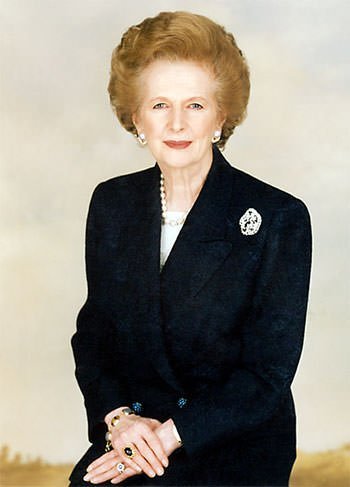
#5 SHE REDUCED MILITANT TRADE UNIONISM
In the 1970s, days lost to trade union strikes were at all-time highs. The number of stoppages across the UK peaked at 4,583 in 1979 leading to the loss of 29 million working days. Margaret Thatcher was committed to reducing the power of the trade unions. She introduced a number of legislation to accomplish this including making secondary industrial action illegal; forcing union leadership to first win a ballot of the union membership before calling a strike; and abolishing the closed shop, which is a workplace where all employees must belong to an agreed trade union. Thatcher’s legislation was met with resistance most prominent of which was the UK miners’ strike of 1984–85, which involved 142,000 mineworkers. The strike was ruled illegal in September 1984 and called off on 3rd March 1985. It is regarded as a defining moment in British industrial relations and a major victory for Thatcher. Stoppages due to strikes fell steadily throughout the rest of her premiership. In 1990, there were only 630 with fewer than 2 million working days being lost. Thatcher thus ended militant trade unionism in U.K. which had severely affected the economy till then.
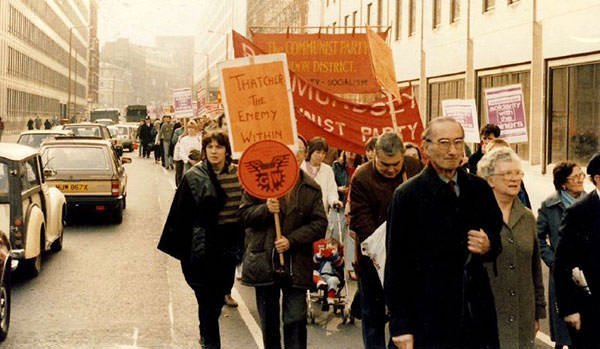
#6 HER ECONOMIC POLICIES LOWERED INFLATION IN THE 1980S
In the 1970s, Britain was experiencing very high inflation which peaked at around 26%. When Thatcher took office, it was at 10.3% but this was not due to any policy shift. In economics, Monetarism is the practice of controlling the amount of money in circulation as the chief method of stabilizing the economy. Thatcher followed the policy of Monetarism to control the money supply in order to control inflation. She increased interest rates and indirect taxes to slow the growth of the money supply, thereby lowering inflation. Inflation fell significantly under the leadership of Thatcher settling around 4-5% annually by mid-1980s. However, at the end of her premiership, it was 9.7%. Though Thatcher’s policies lowered inflation, they also led to rise in unemployment. It rose from 5.3% to as high as 12% in 1984 before falling again to 7.5% at the time she left office.
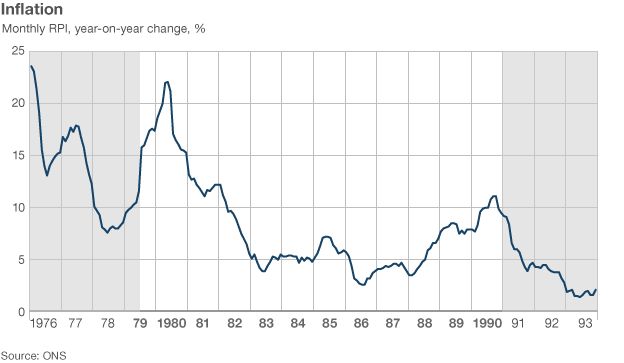
#7 SHE IMPLEMENTED THE RIGHT TO BUY POLICY
The Thatcher administration implemented the Housing Act of 1980 giving house tenants in England and Wales the Right to Buy their house from their local authority. The Act allowed tenants who had lived in their homes for at least three years to buy at 33% discount of the market price and 44% for a flat. If one was a tenant for over 20 years, they got a 50% discount. The Right to Buy affected around 3 million people; one third of whom actually purchased their housing unit. A version of the scheme is still running today giving secure tenants of councils and some housing associations the legal right to buy, at a large discount, the council house they are living in. The Housing Act of 1980 is regarded as one of Thatcher’s largest and most successful policies.
#8 She LED BRITAIN SUCCESSFULLY THROUGH THE FALKLANDS WAR
The Falkland Islands is a British overseas territory in the South Atlantic Ocean. On April 2, 1982, Argentina invaded and occupied the Falkland Islands as they claimed that the islands were Argentine territory. The British government regarded this as an invasion of its territory leading to the Falklands War between the two nations. Thatcher set up and chaired a War Cabinet to oversee the conduct of the war and by April 5, she authorized and dispatched a naval task force to retake the islands. The Falklands War lasted for 74 days and ended with Argentine surrender on 14th June 1982, returning the islands to British control. 649 Argentine and 255 British military personnel died during the conflict. The Falklands War is regarded as a defining moment of Thatcher’s premiership which established her as a highly capable and committed war leader.
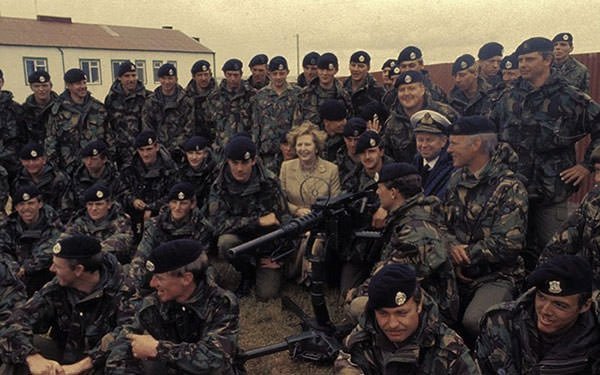
#9 SHE PLAYED A PART IN ENDING THE COLD WAR
Like American President Ronald Reagan, Margaret Thatcher believed that a more aggressive policy was needed to end Communism in Europe and to win the Cold War. This was at a time when most doubted that the Cold War could be won in the near future. Thatcher worked closely with Reagan to bring the Cold War to a conclusion favourable to the West. Among other things, it was Thatcher who put forward the idea that Mikhail Gorbachev was the key to the solution. She played a major role as a broker between Reagan and Gorbachev in 1985–87 leading to the successful negotiation of the Intermediate-Range Nuclear Forces Treaty (INF). The Cold War ended in 1989 leading to the overthrow of communist regimes of Central and Eastern Europe. Most historians credit Thatcher’s leadership, policies and resolve as being an important factor in West’s victory in the Cold War.
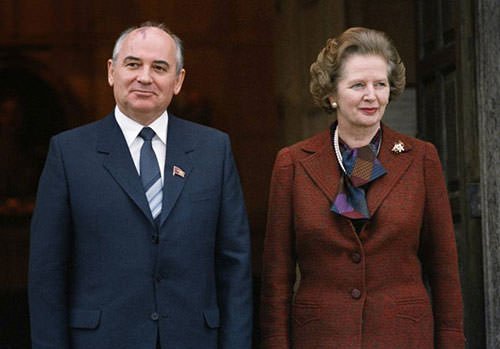
#10 she IS RANKED AMONG THE MOST INFLUENTIAL PEOPLE OF 20TH CENTURY
Thatcher resigned as Prime Minister and party leader in November 1990. Within two weeks of her resignation, she was appointed a Member of the Order of Merit (OM) by Queen Elizabeth II. In 1992, she was given a life peerage as Baroness Thatcher which entitled her to sit in the House of Lords. In 1991, Thatcher was awarded the Presidential Medal of Freedom, the highest civilian honour in the United States. The same year she was also awarded the Grand Cross of the Order of Good Hope by the South African government. Other honours received by her include Honorary Fellow of the Royal Institute of Chemistry (1979), Fellow of the Royal Society (1983) and the Ronald Reagan Freedom Award (1998). In 1999, Time magazine ranked her among the 100 most influential people of the 20th century. In 2002, she was ranked 16th in a BBC television poll for the 100 Greatest Britons in history. She was the highest ranked living person. Margaret Thatcher is considered as one of the greatest and most influential politicians in British history.

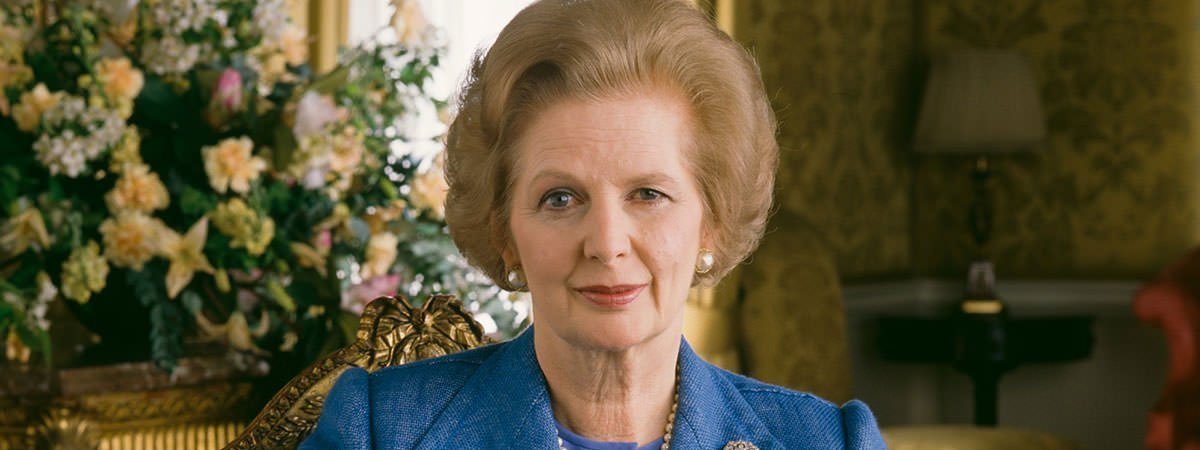
As of June 2023 we are reaping the whirlwind of Thatcher’s policies in a number of areas.
1. Selling public housing stock (which was not hers to sell) at discounted prices was nothing less than a cheap one-off bribe.It gave a significant cash benefit to residents for no justifiable reason and any money accruing from the sale should have been invested in building new homes. This was actually banned. Rents should be controlled. We have appalling levels of house inflation in the absence of having a proper balanced economy.
2. Privatisation of public utilities had no justification other than to offload any government responsibility. The existing operators had no obvious competition. Largely, ownership has passed into the hands of foreigners. This lacks national security and means there is insufficient investment in upgrading and profits go abroad. Bad idea all round.
3The shift to a service based economy at the expense of manufacturing capability is a massive strategic mistake.
4. Thatcher sowed the seeds of massive levels of division and poverty and alienated regions of the UK leading to the likelihood of eventual break up.
She didn’t support the apartheid regime – quite the reverse. She didn’t support sanctions against SA because the knew that they would impact the poorestpeople in SA. In an interview on British TV Pik Botha, a prominent SA politician stated that Thatcher was instrumental in bringing about the demise of apartheid.
After learning about her history, am pretty sure that I have been able to learn a lot about her like being hard working, will always take as an example in my daily life because I now get the strength to work hard because of her. Thank u so much.
She supported the Apartheid regime
She supported Saddam Hussein
She supported Osama bin Laden I’m Afghanistan
She opposed German reunification
She was on the wrong side of history in many more instances
She was also on the right side for many issues. She helped to save Britain and if you fail to see that maybe study her policies again.
Was she? we know what happened when the world turned its back on Bin Laden, was German reunification that great an idea? it seems to have resulted in the European Union being run for Germany’s benefit. She was a staunch supporter of the EEC was she wrong there? Given the result of removing Hussain was she wrong there?